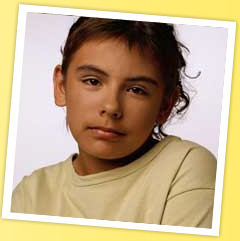
Families can encounter physical, emotional, psychological, spiritual, financial and geographic upheaval after a loved one’s death. Children need nurturing, attention, love and stability during the grieving process, but unfortunately, often their parents and other family members are dealing with their own grief and cannot always be emotionally present for their young ones.
When support services for the bereaved are present in the community, families can gain strength by learning to grieve well together.
But some children who do not have the love, nurturing and attention they need after a loved one’s death, will seek to find comfort in wrong places.
Our youngest children, who do not have the language skills to express their anger and frustration, may become introverted, depressed, act out, start fights, refuse to leave the presence of a surviving parent, or struggle to attend classes and complete schoolwork.
For teens and young adults, addictions to alcohol, drugs, and pornography, promiscuous sex leading to untimely and sometimes unwanted pregnancies, criminal behavior including gang violence, self-mutilation, and dropping out of school, are just some of the after affects of neglected grief.
Frequently, these young survivors run households, pay bills, comfort one or both parents, and often put their own grief on hold while the parent or parents are grieving. Then, some time later, when the parents are feeling stronger, the roles reverse and the teen will begin to experience their own personal grief. But peers, teachers and even their own family are now asking “shouldn’t you be over this by now?”
If you speak with an adult who experienced the death of a parent, sibling or someone with whom they had a significant connection to as a child, they will tell you how devastated they were and how it changed their life. Studies have shown that when grief is unaddressed or intentionally suppressed because of cultural or religious reasons, these hurts are carried into adulthood only to arise in depression, poor relationships, self-esteem problems, or some form of unconstructive behavior.
Adults who have unresolved childhood grief spend entire lives self-medicating with legal and illegal drugs, alcohol, shopping sprees, food, pornography, promiscuous sex and build unhealthy relationships, sometimes including physical and emotional abuse, all in an effort to comfort their pain and fill a deep void in their lives.
We cannot change the death individuals have experienced, but we can make a difference by providing an opportunity to be with other bereaved children, teens and young adults, as well as trained grief counselors who truly understand their pain.
We can provide funding to organizations which specialize in helping children and families who are grieving a loved one’s death. And, consequently, we will help reduce the rate of alcohol, drug and sexual addictions, school drop-out rates, delinquency, depressions, unwanted children, and even suicides.
With your commitment to the needs of bereaved children and families, and your generous, continued support, we can do just that.
You can donate now here.
The Foundation for Grieving Children, Inc. is the first national non-profit public charity which raises funds for the benefit of children, teens and young adults who have experienced a loved one’s death, regardless how their loved one died or was killed.
Your Donations are tax-deductible.
(c) 2003-2024 Foundation for Grieving Children, Inc.